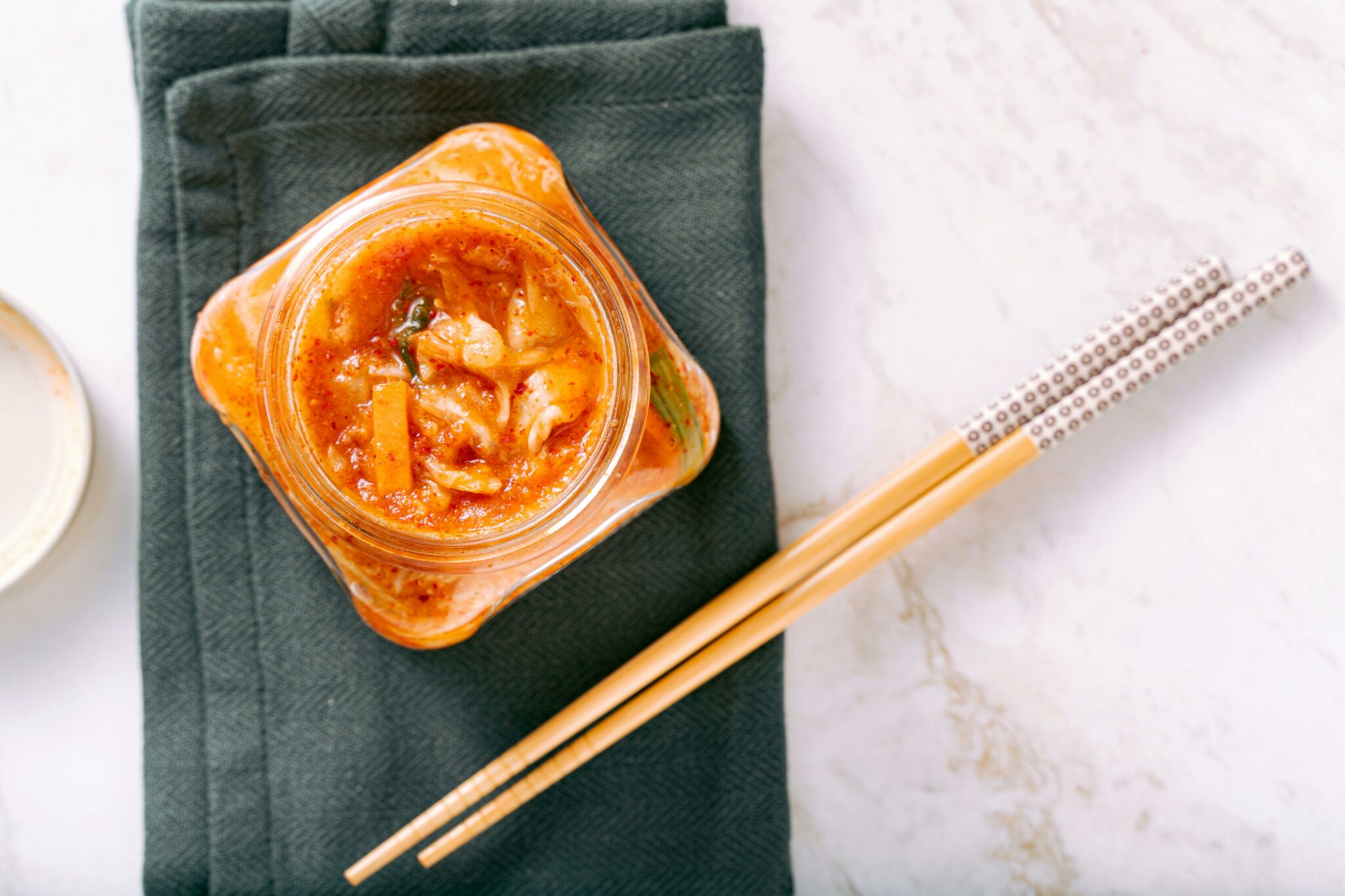
Fermented foods – are they suitable for an IBS stomach?
March 14, 2023
Kimchi, kombucha, fermented, and pickled – do these terms sound foreign to you? In recent years, we have become acquainted with a range of new words in the field of gut health, realizing how important our gut bacteria are for our well-being. The question is, do fermented foods suit an IBS stomach?
As interest in gut health increases, so does the fascination with fermented foods. Examples of such foods include sauerkraut, yogurt, and sourdough bread, which have long been familiar in our part of the world. Fermentation is a process where carbohydrates are broken down into alcohol or organic acids by adding microorganisms (yeast or bacteria) to initiate the fermentation. This method has been used for centuries to preserve food. Many claims suggest the benefits of consuming fermented foods, such as promoting the growth of good gut bacteria or probiotics, which help maintain a healthy and balanced gut flora.
But are all claims regarding the health benefits of eating fermented foods accurate? There are limited clinical studies investigating this, and the answer is not entirely clear. While we know that certain foods, prebiotics, and probiotics—or the absence of these foods—can change a person’s gut flora, we still do not precisely understand how they affect our long-term health. However, we do know that many of these foods are part of a healthy diet.
Thus, it is challenging to determine whether consuming fermented foods promotes the growth of beneficial bacteria in our gut. Research is being conducted at Monash University, which is also a leader in FODMAP research. They have tested the FODMAP content in some fermented foods.
Sauerkraut is high FODMAP
Analysis of fermented products shows that the FODMAP value in fermented and raw foods differs. For example, regular cabbage, which has a low FODMAP content in its raw form, becomes high-FODMAP once fermented into sauerkraut due to the presence of mannitol. This means it can sometimes be challenging to predict the FODMAP levels in foods affected by fermentation or other processes. However, there are several fermented foods that are low-FODMAP, such as spelt sourdough bread, lactose-free yogurt, tempeh, and pickles. Sauerkraut can be tried after the elimination phase, and if you are not sensitive to mannitol, then it can be included in your diet. Pickled red cabbage and other pickled vegetables can also often be consumed in smaller amounts to remain low-FODMAP. So again, the conclusion is—experiment and see if you enjoy sauerkraut or pickled vegetables.
Kimchi is low FODMAP
Kimchi is a traditional Korean fermented dish, often served as a side in Korean cuisine, typically based on napa cabbage. During fermentation, lactic acid bacteria beneficial for the gut are produced. Garlic is usually used in kimchi, but it can certainly be made without it.
Kombucha is high FODMAP
Kombucha is a tea beverage with ancient origins in northern China. The name means fermented, cooled, and sweetened tea, and the drink has a tangy vinegar-like character. The fermentation is carried out by bacterial cultures that convert sugar into acetic acid, among other things. Kombucha is sometimes referred to as a probiotic due to the presence of beneficial bacteria. Studies in mice and rats have shown that it possesses antimicrobial, antioxidative, liver-protective, and cancer-preventive properties. The starter culture in kombucha is known as Scoby or kombucha mushroom, which, according to legend, should preferably be obtained from a friend.
Kombucha has been analyzed as high-FODMAP at Monash University and is not recommended for those in the elimination phase. However, you may try it in smaller amounts during the reintroduction phase. 180 ml of kombucha is limited in the oligosaccharides and fructans category.
What does this mean for you with IBS?
In summary, it is beneficial to consume probiotics from food, but it is equally important to eat prebiotics, the food for good gut bacteria. Prebiotics are dietary fibers, and for those with IBS, it is essential to find the foods that work for your stomach while also benefiting your gut bacteria. So, fermented foods are not a bad option—and feel free to try both kimchi and kombucha!
Sofia Antonsson
Reg. Dietitian, Belly Balance
Belly Balance digital treatment
In the Belly Balance app, you can log symptoms, keep a food diary, scan products, find FODMAP lists, and much more to help you manage your IBS.
Try the app for freeRead more about

Pumpkin and IBS
What is low in calories, rich in fiber, and super tasty? Pumpkin, of course! While pumpkin is primarily associated with Halloween, this vegetable is often available in grocery stores year-round. Pumpkins are not only great as spooky decorations but also incredibly delicious in food. Additionally, pumpkin and IBS often make a good combination.

Vegetarian FODMAP
How do you follow a vegetarian FODMAP diet? It’s not entirely easy, but it’s definitely possible with some research and creativity! Here are our best tips for those following a vegetarian FODMAP diet and looking to optimize their intake of protein, iron, and nutrients.


